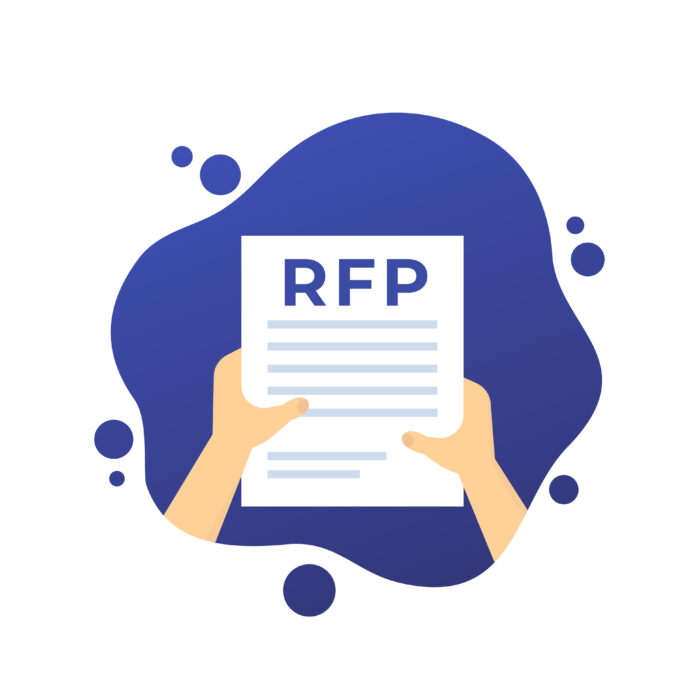Are you gearing up for an insurance broker RFP this year? Here are some key considerations for a great insurance broker RFP. This content is specifically designed to help save you time pouring through RFP templates and cumbersome resources. First off, we need to define what an RFP is. According to IRMI, an RFP is a Request for Proposal — a document used to secure proposals for insurance or risk management services.
There are key considerations you need to know in order to conduct a highly productive and efficient RFP process. The goal is to not only pick the most optimal partner for your company but to ensure that all brokers participating in the RFP leave feeling good about the process, even those who aren’t awarded the business. The latter can be a tough needle to thread, but a well-run RFP that is considerate of the participants and their time can at least put you on the right track.

Ditch the Typical RFP Questions
One key consideration for a great insurance broker RFP is to ditch the typical RFP questions. If you want to avoid boilerplate, pre-formatted written responses that are self-congratulatory, mix up the questions. Drop the quantitative mundane RFP questions about the number of offices, premium size, and employee count. Instead ask questions that are unique or specific to your operations, business strategy, and risk philosophy. See how adept the broker is at uncovering potential exposures and diagnosing risk management challenges.
Guidelines when drafting your RFP
- Keep the list of written questions short; be respectful of the broker’s time.
- Don’t ask for information that you can readily obtain from the broker’s websites, public filings – see examples above.
3 Questions to Always Include in an RFP
Be sure to include the following three questions in all RFPs because they tell a lot about the broker you will be working with.
- Tell me about your firm’s culture and service model.
- Describe our company’s risk profile and how you would best position us in the insurance market.
- What expertise, services and resources do you provide that would drive real value for our organization?
In response to these questions, reward responses that are concise and highly focused on your business and risk management goals – not the broker’s. This is a key consideration for a great insurance broker RFP. It will also tell you what your working relationship will be like.
Make Oral Presentations More Interesting and Relevant
Granted, the bar is low when it comes to making RFP presentations more exciting. In other words, an RFP oral presentation is really just a job interview. Most participants, interviewers, and interviewees alike find that process overly stiff and formal. So how can you make the interview process better?
Follow Delta’s example
First, our advice is to keep it simple and follow Delta’s example. They limit their phone surveys to one question, “On a scale from 1 to 5, with 5 being definitely “yes,” and 1 being definitely “no,” how likely would you be to hire the last Delta representative you talked to if you ran a customer service company?”
In an Inc. magazine article, Don Peppers shared his experience with Delta customer service and how it changed his mindset. He said, “I kid you not, this was the remarkably interesting survey question posed to me just a few days ago, after I finished a complicated phone interaction with Delta Airlines. What a masterful way to get at the real bottom-line issue of customer service – the people, the human beings, who interact personally with customers.”
In short, perhaps the only question you need to ask is this one:
- “Tell us why we should hire you?”
Put the onus on the broker to take an open-ended question like this and address it in a creative way that speaks to all the salient insurance and risk management issues facing your organization.
People, Not Firms
People, Not Firms – remember you will be working with individuals and a team, not the entire firm. Select individuals who are great fits for you and your organization. Who will be involved in the day-to-day servicing of your account? As a result, the firm’s reputation and brand should be secondary to the actual experience and expertise of the team involved.
Call Broker References
Call Broker References – make sure the client references are specific to the proposed team and are similar to your company’s risk profile. Then spend time visiting with the references to truly ascertain the value and strengths of the brokers. This can usually be done in a 15-minute phone conversation with each reference. You will also want to check in with other trusted advisors, e.g., auditors, outside legal counsel, or a network contact who has worked with the proposed brokers to get their perspectives.
Negotiate the Broker Fee Together
Negotiate the Broker Fee from the Same Side of the Table – once you know the broker team you want to partner with, you’ll be able to mutually work out the costs. Broker fees are a subset of the total cost of risk. Partner with a broker who will best manage your total insurance costs and present those in a transparent and easy to understand way. Then sit down together to determine what compensation structure (fee vs commission) and amount is best for your organization and conducive to the new partnership.
To sum up, an RFP process is definitely more art than science. We hope these considerations for a great insurance broker RFP help you streamline the experience. The process begins with objective guidelines and questions but quickly morphs into the subjective needs and risk management goals of your organization. Most important, this is why in the end you should trust your gut instincts in determining the best long-term partner for your company.
You can learn more about Diversified Insurance Group here.

